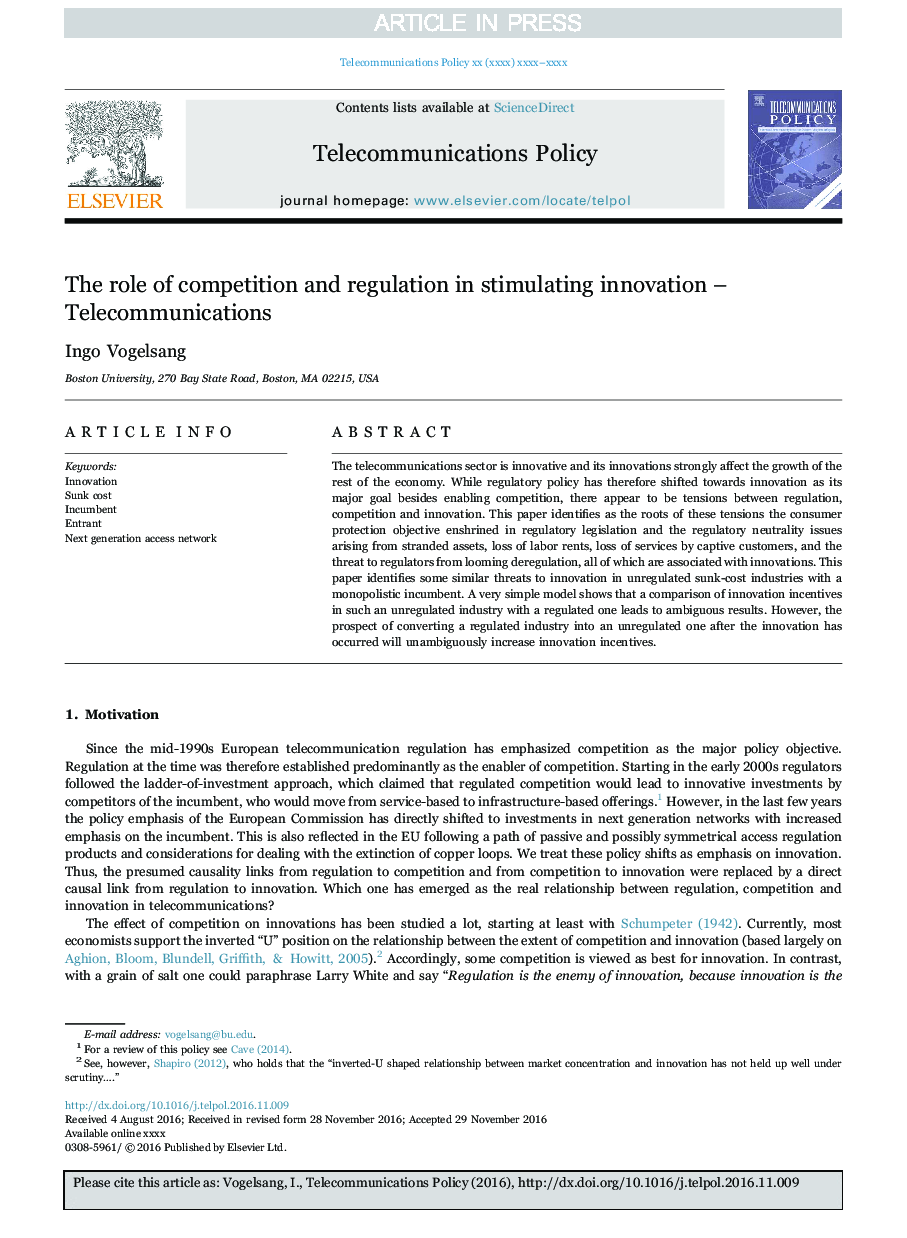| Article ID | Journal | Published Year | Pages | File Type |
|---|---|---|---|---|
| 6950354 | Telecommunications Policy | 2017 | 11 Pages |
Abstract
The telecommunications sector is innovative and its innovations strongly affect the growth of the rest of the economy. While regulatory policy has therefore shifted towards innovation as its major goal besides enabling competition, there appear to be tensions between regulation, competition and innovation. This paper identifies as the roots of these tensions the consumer protection objective enshrined in regulatory legislation and the regulatory neutrality issues arising from stranded assets, loss of labor rents, loss of services by captive customers, and the threat to regulators from looming deregulation, all of which are associated with innovations. This paper identifies some similar threats to innovation in unregulated sunk-cost industries with a monopolistic incumbent. A very simple model shows that a comparison of innovation incentives in such an unregulated industry with a regulated one leads to ambiguous results. However, the prospect of converting a regulated industry into an unregulated one after the innovation has occurred will unambiguously increase innovation incentives.
Keywords
Related Topics
Physical Sciences and Engineering
Computer Science
Information Systems
Authors
Ingo Vogelsang,
